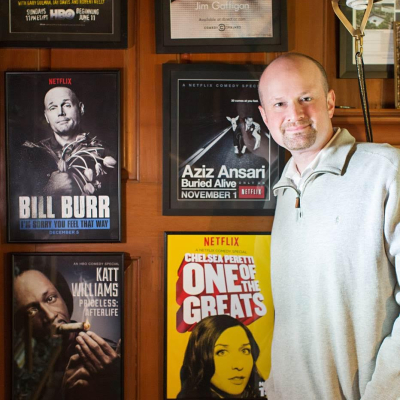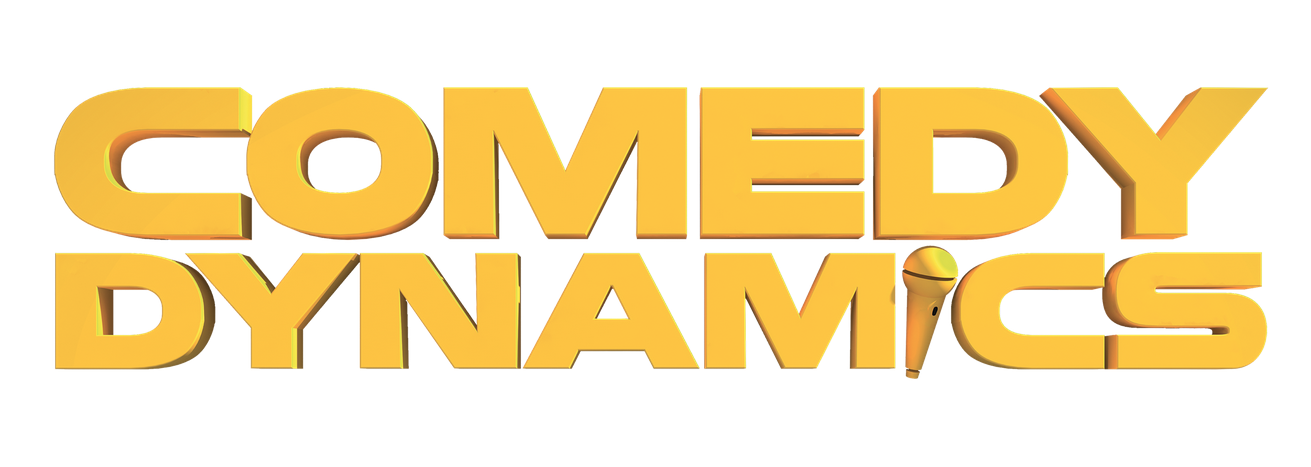Comedy DynamicsClient Information
28 March, 2016Print

Why Comedy's Hotter Than Ever: A Q&A With Comedy Dynamics' Brian Volk-Weiss
Interview by Brian MansfieldIn just eight years, Comedy Dynamics has become the largest independent producer of comedy in the U.S., working with acts including Louis C.K., Kevin Hart, Craig Ferguson, Jim Gaffigan and Aziz Ansari. Comedy Dynamics founder and president Brian Volk-Weiss considers today to be the Diamond Age of Comedy. Here, he talks about how Netflix and other streaming services have reshaped the market for comedy, how his management background shaped his vision for Comedy Dynamics, and what the future could hold for his company and comedy in general.
Q: Why do you say we're in the Diamond Age of Comedy?
A: Even five or six years ago, there was really only Comedy Central, HBO, Showtime. Now, there are, like, 12 outlets. YouTube, for instance, absolutely has made comedy bigger. Comedy is one of the best things on YouTube, in terms of a big thing that can work in little sections. Because of those things, there are more places to see comedy, and it's easier to access than it was before.
Q: Did the audience for comedy change at the same time, or did the new media finally find a way to tap into a desire that always had been there?
A: I don't think the audience changed; I think it just grew. Here's one example: I've been collecting comic books since I was in third grade. Until about seven years ago, it was very unusual to see girls in comic-book stores. Now you go to comic-book stores, and it could be 50 percent women. It doesn't mean that comics have changed -- although I think comics have changed a little bit -- but the Marvel movies have brought women in.
Comedy is the same way. There are more female comedians. Partly because of that, but not entirely, there's more female interest in comedy.
Q: Describe what you've called The Netflix Effect on comedy.
A: First, the volume of the comedy Netflix is making has changed things. They're doing Tom Segura, and they're doing Larry the Cable Guy. I don't know any other companies that would do both of them. Second, on Netflix or Hulu or wherever, you can watch whenever you want to watch. More people are watching just because it's available in an easier way.
That affects the entire business. Used to be, you'd do a special on Comedy Central and your touring business would go up 10 percent, maybe 20 percent in an extreme case. You're a comedian and your first special is on Netflix? Your touring business could go up 2,000 percent. You could be selling 20-50 tickets a night. Six months after your special comes out, you could be selling 500 to 800 tickets a night. That's the Netflix Effect.
Q: What other areas of entertainment could see something like The Netflix Effect?
A: It's already happening with documentaries. HBO did this very well, as well. The difference is, HBO would release five documentaries a year. Netflix may release 50. The other thing is -- and 26 months ago, I would not have understood this, because my first kid was born 25 months ago -- they're doing it for kids' programming. They literally have changed the way kids watch TV. They have a voracious need for original programming. My daughter does sign language; I don't think she would have done sign language without Netflix.
Q: Some people think Netflix is the future of entertainment. For comedy, though, it seems to be the present. What's the future?
A: Virtual reality. With the fourth season of Coming to the Stage, we are starting to record everything in VR.
Maybe you'll be at a store or at a convention and try VR, and you'll think it's cool. But I'll tell you now: You don't get it until you try it at home. You'll be able to sit in your living room chair and put this thing on and feel like you're in the comedy club. You'll look up and see the ceiling. You'll look down and see beer stains and gum on the floor. You'll look behind you and see the waitress giving someone a drink. That's on top of the comedian onstage, telling jokes.
It'll blow your mind. No one's going to leave their house again.
Q: Tom Green hosts the third season of Coming to the Stage, which premieres May 12 on Hulu. Do you see that show as a way to establish relationships with developing talent at the same time you're producing specials for comedy's biggest stars?
A: Absolutely. It puts us in business with these comics early. Also, it builds trust between us and the audience. We have 12 episodes that have aired and six that are in post-production. We haven't had a new episode air in about five months, and more people watched Coming to the Stage yesterday than were watching when we premiered new episodes. That tells me people have started to trust us that they can see good comedy, even if they haven't heard of the comedians before they watch the show.
A lot of comedians we work with on Coming to the Stage, we work with again. We worked with a couple of comedians from Coming to the Stage on our Craig Ferguson show, Join or Die. That's something I'm very proud of.
Q: How did your background as a manager shape your vision for running an artist-friendly company?
A: Our motto is two words: "Artist obsessed." We thought carefully about those words. The reason "artist" is one of them is because of my management background.
When you're working with an artist, every single thing has to be about the artist. On our production calls, half the questions comedians will ask, my answer will be, "The answer is whatever you need to be comfortable when you're onstage." Then they'll be like, "OK, then, I'd like this," and I'll be like, "Then that's what you'll have."
It's the same thing from the production and marketing and distribution side. It's about the artist; it is not about Comedy Dynamics. That ostensibly means we're also focused on the fan base of the artist. That is a thousand percent from the management background.
Q: Comedy Dynamics won its first Best Comedy Album Grammy this year, for Louis C.K.'s Live at Madison Square Garden, after dominating the category with three nominations. What was the industry reaction to Comedy Dynamics getting more nominations than everybody else combined?
A: It's all about expectations. We've had at least one nomination every year since 2012. In 2014 was the first time we had multiple nominations. Everyone couldn't believe it. Now, it's expected. In 2014, it was, "Who the hell is Comedy Dynamics, and how did they get two of the five?" In 2016, it's "Why didn't they have all five?"
Q: What developing trends do you see in the comedy industry?
A: I see a bunch of trends, most of which are positive. I see only one that's negative.
A lot of colleges are becoming very PC. Certain comedians are saying, "I'm just not going to do colleges anymore. If people are going to be offended and go on Twitter and be giant babies, I'm just not going to do colleges." If that's happening on colleges, as those kids graduate and move on, I'm worried it will start spreading to clubs and then television.
Among the positive trends I'm seeing: There's a lot more acceptance of the fringe. In any art, material will start in the fringe, then become mainstream. Andy Warhol, I think, was on the fringe for years before he became mainstream. It used to be that, if you did stand-up on the fringe, you could spend your entire career there and never get to the mainstream. Now I'm seeing that people on the fringe don't stay there very long.
Q: Share a time you failed and what you learned from the experience.
A: We made a horror movie a couple years ago called 8989 Redstone. It was a tremendous failure, a terrible movie, and all my fault. To show you how big a disaster it has been, we shot the thing in November 2013, and it's coming out in July.
What I learned from it is to get good at something and stay good at that something. The prop department made a sign for the front of the house that says 8989 Redstone. I have it on my office wall. All I've got to do is look at that sign, and it reminds me, "Stay in your lane, stay in your lane." We will make comedy features one day, to be sure. But I assure you, we ain't never making another horror movie on my watch.

Comedy Dynamics on the Web:
Website: http://www.comedydynamics.com/
Facebook: https://www.facebook.com/comedydynamics
Twitter: https://twitter.com/comedydynamics
Hi-res photos and press releases:
